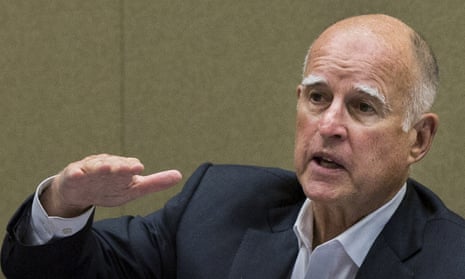California’s governor on Wednesday signed an ambitious bill to combat climate change by increasing the state’s renewable electricity use to 50% and doubling energy efficiency in existing buildings by 2030.
Governor Jerry Brown approved the measure after losing a political battle against oil interests as he also tried to cut petroleum use by half in the most populous US state.
He characterized that loss as a short-term setback. Still, the final bill lacked the punch that Brown hoped to deliver when he attends the United Nations climate change summit in Paris in November.
“We have the technological means, and now we have the legal mandate to reduce carbon pollution,” he said in a statement after the legislature approved the bill. The bill defers to state regulators to implement the programs.
Brown, a Democrat, began the year setting the most aggressive greenhouse-gas emissions benchmark in North America. He discussed global warming concerns with the pope at the Vatican in July and has met with other leaders around the world on the issue.
He pitched the plan to cut petroleum use by half, boost renewable electricity production and double energy efficiency in existing buildings without specifying how California could achieve those far-reaching goals.
Many moderate Democrats were concerned that the petroleum mandate would hurt California’s working-class residents. The lawmakers sought greater oversight of state regulators, but Brown refused to give up what he viewed as executive authority.
They were concerned about the petroleum mandate and wanted greater oversight of the California Air Resources Board that has been in charge of implementing California’s ambitious greenhouse gas emissions law.
Catherine Reheis-Boyd, president of the Western States Petroleum Association, has said removing the proposed cap on oil use reflects how the state’s energy policy affects its competitiveness.
“Californians are best served by inclusive energy policy and by a legislative body that retains authority on issues so critically important to jobs, communities and our way of life,” she said in a statement at the time.
The governor has said the setback has only strengthened his resolve to clean up the environment for future generations.

Comments (…)
Sign in or create your Guardian account to join the discussion